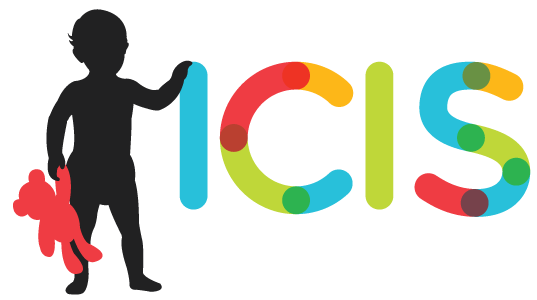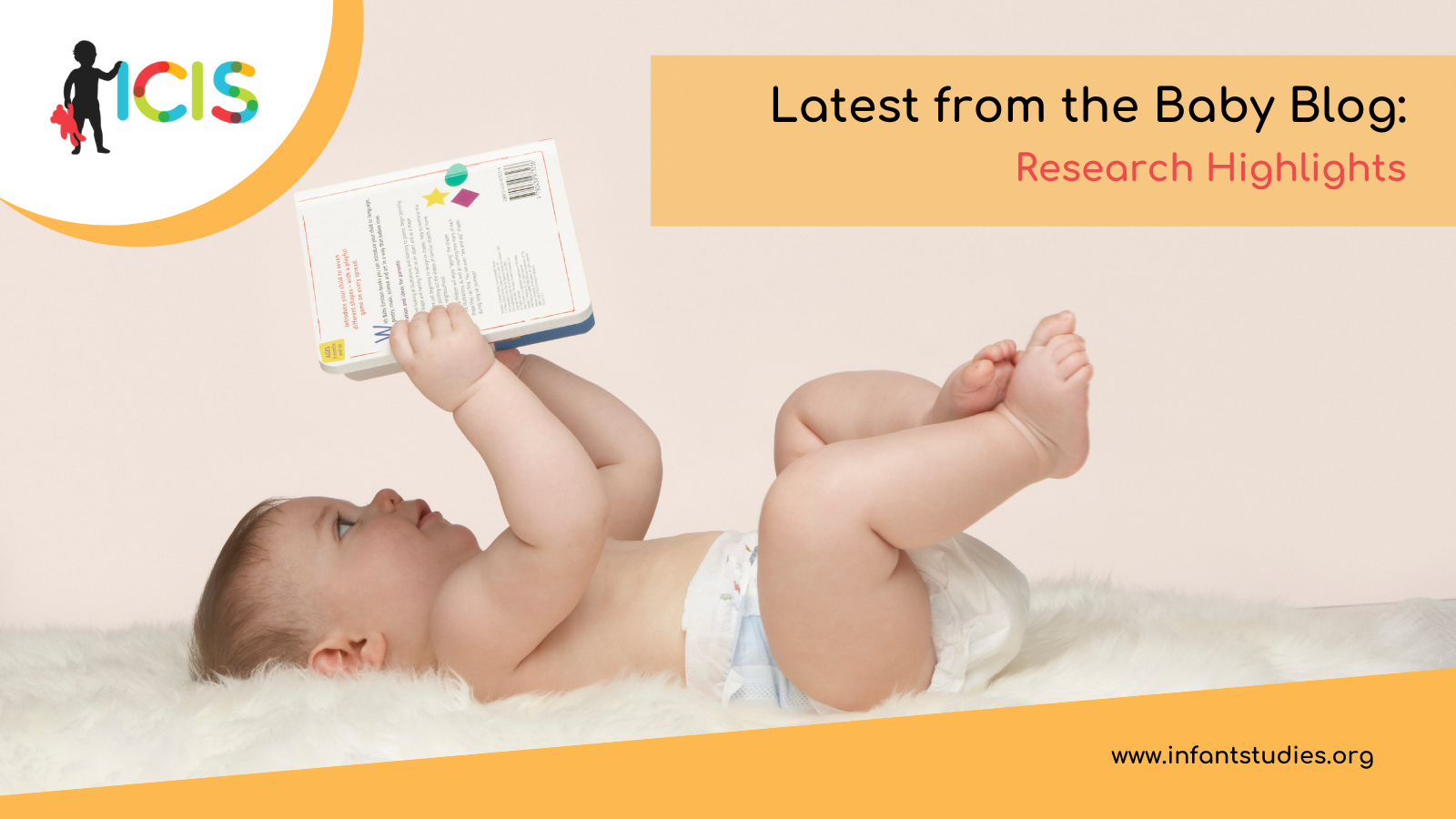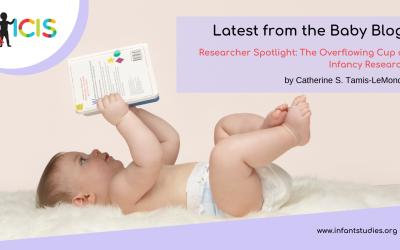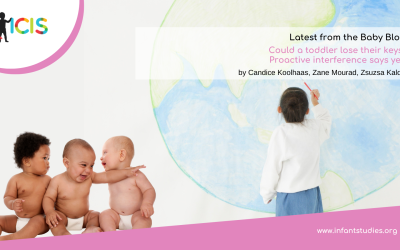by Vanessa LoBue
This month, Policy Insights from the Behavioral and Brain Sciences is featuring a special issue highlighting the work of some of our very own ICIS rising stars, each of which has provided a brief review on an important issue regarding infant development and its implications for public policy. The special issue is divided into three sections, one of which contains 6 articles on early interventions for infants and young children, especially those from low-income backgrounds. Although these 6 groups of authors each wrote their articles independently, almost all of them focused on the potential negative impact of parent stress on infant outcomes, and what we can do to address it.
Marion van den Heuvel opens the special section by describing the problem at hand: While mothers are expected to be “glowing” and grateful for the opportunity to bring new life into the world, parenting can be an incredibly stressful experience, especially in the first few months following the birth of a child. This is important, as Lisa Scott and Natalie Brito point out, maternal stress has been linked to problems with infant attention, perception, learning, language, and socioemotional development. Further, an infant’s brain is incredibly sensitive to environmental experiences in the first few years of life, making it important to address the problem of maternal stress early in development.
The impact of maternal stress begins to take hold prenatally, and Marion describes how maternal stress while pregnant can alter the functioning of the placenta, lead to increased stress hormones in the uterine environment, and might even alter the fetus’ gene expression. On top of that, stressed mothers have been shown to eat poorly and exercise less, which can also alter the fetal environment in less-than-optimal ways.
Problems associated with maternal stress continue after the birth of the infant: Marion discusses how stressed parents are more likely to be unresponsive parents, which can disrupt the formation of early attachment relationships. Similarly, Victoria Leong explains how parent mood disorders like depression and anxiety can interrupt the quality of infants’ early social interactions with their parents. These early parent-child interactions, Victoria explains, are incredibly important for infants’ social learning, and unresponsive, intrusive, or unpredictable parental interactions are a risk factor for the later development of behavioral and mental health problems. Further, Marissa Ogren and I discuss how the emotional input that anxious, depressed, or stressed parents provide to their infants can shape infants’ emotional understanding in ways that facilitate the development of these same psychopathologies in the child later in life. Finally, Sabine Seehagen and Ann Kaiser, Jason Chow and Jennifer Cunningham talk about how early sleep problems (Seehagen) and language delays (Kaiser, Chow, & Cunningham) can add to problems with later social-emotional and cognitive development.
But the articles don’t only point out potential problems associated with parental stress; the authors also provide insightful evidence-based strategies for how we can address them. Sabine argues for the importance of establishing healthy infant sleep habits, as mature sleep patterns in infancy are associated with better cognitive functioning in adulthood. She also cites a body of work demonstrating that taking a nap after a learning task strengthens infants’ memory for the learned information. She points out that infants should sleep based on their natural schedules, instead of mandated times. Communicating with childcare centers about how to recognize the signs of sleepiness is important, as is communicating the importance of healthy sleep habits to parents in a digestible way. Importantly, she points out that an infant who sleeps well makes way for a parent that sleeps well, resulting in a healthier, more responsive parent.
Besides child-focused interventions, several of the authors (including Marissa and I) discuss how interventions that focus on parents could be helpful for reducing maternal stress and mitigating downstream problems for infants that result from having a stressed caregiver. For example, Lisa and Natalie talk about the importance of having paid parental leave policies, which would not only allow parents the time to establish healthy sleep routines with infants, but also has well-documented benefits for infants’ brain health, prolongs the period for breastfeeding, and increases parents’ availability for infant doctor’s visits. Paid family leave also allows parents to have time to interact with their infants during the first few months of life, which are critical for an infant’s brain development and the formation of early social interactions, and might even relieve some stress associated with caregiving responsibilities.
Likewise, Marion suggests screening for maternal health issues during and after pregnancy, and Victoria advocates for the development of new tools to detect disruptions in early parent-infant social interactions. Importantly, these screenings should be available universally, so that families most at risk have access to the help they need. Indeed, Lisa and Natalie point out that Black and Latine families are currently less likely to have access to paid leave compared to White individuals. Likewise, Ann, Jason, and Jennifer discuss how children in poverty, who are most likely to have stressed parents, are the ones who are least likely to have access to the resources they need.
In the end, although the infancy literature is ripe with disagreements over the theories, research methods, and mechanisms that explain trajectories of socioemotional development, the authors featured here not only point out some of the same problems with development, but they also come same general conclusion—that we must help parents. Caregiver-focused intervention strategies—including paid leave, early universal screening, and easy and direct access to information—can help reduce parent stress so that parents can appropriately respond to their infants’ needs, develop healthy social interactions with their infants, and help their infants (and themselves) get a good night’s sleep. Helping parents can therefore be the most direct way of targeting stress, potentially carrying the most potential to encourage long-term social-emotional health in both infants and their families.
About the Author

Vanessa LoBue
Rutgers University
Vanessa LoBue, Ph.D., is an Associate Professor of Psychology at Rutgers University. She received her B.S. from Carnegie Mellon University and her M.A. and Ph.D. from the University of Virginia. Dr. LoBue’s research focuses on human behavioral responses to emotionally valenced stimuli—specifically to negative or threatening stimuli—and the mechanisms guiding the development of these responses. More specifically, she examines how early perceptual biases for threat contribute to maladaptive avoidance behaviors, such as those associated with the development of fear and anxiety, and how cognition contributes to children’s learning of adaptive avoidance responses, such as avoidance of contagious people or contaminated objects.




